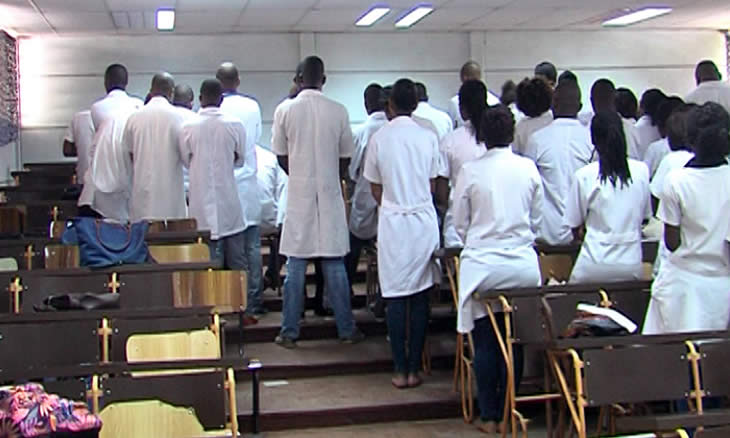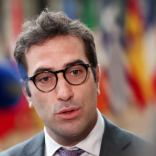Spain backs EU efforts to use frozen Russian assets, cuts gas imports from Russia
Health ministry denies 70 medical students their allowances – Mozambique

O País / The Ministry claimed there was no money available to sign contracts with students.
Final year medical students from Mozambique’s oldest university, the Eduardo Mondlane University (UEM), are boycotting their hospital internships, a key part of their course, in response to a sudden decision by the Health Ministry to cancel the allowance normally paid to the students and the interns.
In a note sent to the UEM Medical Faculty the national director of human resources in the Ministry, Norton Pinto, said the Ministry does not have the money to pay for the interns.
According to a report in Friday’s issue of the independent newssheet “Mediafax”, this affects about 70 final year students who have spent the past five years studying medicine, and should now go into the wards as interns to assist professional doctors in caring for patients.
The students regard the decision as unjust, and point out that interns have traditionally been paid this allowance. The government agreed to pay the allowance in a decree of 2004, which has never been revoked. The decree states that in their final year students in public medical faculties are entitled to an allowance, and to a paid internship in public health units.
Each of the interns should receive 80 per cent of the starting wage of a doctor. In 2017, that was 33,000 meticais (about 540 US dollars) a month.
The internships should have begun last Monday, but the students are refusing to work on the wards until they receive guarantees that this dispute will be solved. The internship is an obligatory part of the medical course – but until last week, medical students assumed they would be paid for the work done as interns.
The Ministry excuse is that in 2004 the UEM was the only public university training doctors, and the number of interns was only about 25 a year. It was fairly easy for the Ministry to find the money to pay the allowance.
But now the number of final year medical students at UEM has tripled, and two more recently established public universities (Unilurio and Unizambeze) also have medical faculties. This year 180 students from the public universities should be doing internships. Under these circumstances, paying the allowance would have a significant impact on the state budget.
The director of the UEM Medical Faculty, Moshin Sidat, said the allowance was a question for the Ministry, not the University. The UEM was responsible for academic, not financial matters. He recognised that final year medical students “had, because of the 2004 Decree, a contract, under which they provided services to the health system, and in exchange they received an allowance”.
Since the students refused to work on the wards without the allowance, the university postponed the start of the internships to next Monday. “We’ve decided to give the students another week to think better about what they want”, said Sidat. But any student who did not turn up for the internship next Monday risked not completing the course, and thus would not receive a degree.
Eugenio Zacarias, the chairperson of the Order of Doctors, said that since his institution regulates activities concerning professional doctors and not students, it cannot intervene. Nonetheless, he regarded the attitude of the Ministry as unfair and despicable since, from the moment a student enters a ward to assist doctors, he is working and should be paid for that work.
“The Order cannot intervene, but it is in solidarity with the students”, he said. “They should not be sacrificed because of the irresponsibility of others. They deserve the allowance, because it is a right”. Zacarias added that the people who were now denying the allowance to students received an allowance when they were interns.
Zacarias suggested that the Ministry and the UEM should negotiate a solution. He warned that if the students did not work on the wards this would have a serious impact on the health units that normally receive interns.
In correspondence with “Mediafax”, the Ministry said the allowance ought to be paid out of the State Budget, but, due to the scarcity of funds, in recent years the Ministry’s foreign partners paid for the allowance.
Under the latest Memorandum of Understanding with the partners, signed in April 2017, it was only possible to ensure funding to hire health professionals who were waiting for definitive placements in health units. The Ministry claimed there was no money available to sign contracts with students.
The Ministry also told “Mediafax” that students from private universities also become interns in public hospitals, and do not benefit from any allowance. It also made the unlikely claim that a strike by interns would not have any impact on the quality of hospital services.
Nonetheless, it seems that the Ministry may be backing down, since it told “Mediafax” it has requested additional funds from the Ministry of Economy and Finance precisely to pay the allowance.













Leave a Reply
Be the First to Comment!
You must be logged in to post a comment.
You must be logged in to post a comment.